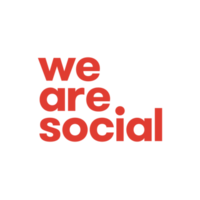In times like these, dating apps are a doorstep to many different experiences for women. While all of these platforms already carry their label like a badge of honour, the message they convey should be one and loud.
And yet, in 2018 still – and in this social context – most of them are tone deaf.
Let’s be clear; I’m quite fascinated by dating apps. One glimpse at my Instagram Stories and anyone will be able to verify that. @tindernightmares, @awardsforgoodboys and @beam_me_up_softboi are some of my favourite accounts. Observing cis hetero males and the ignorance they carry to Tinder/Bumble/Hinge/Plenty of Fish/you-name-it, has been elevated to a form of modern art. It’s a performance as well as a political act. For many women, it’s pure luck if their experience stops in-app. But for many among them, it doesn’t.
I will never be tired of saying again and again (and again) that it’s not safe to be a woman – anywhere in the world. So, today, I will grab the opportunity and talk about the responsibility dating apps bear.
Last year, we talked about how LinkedIn should take measures against sexual harassment, and how every platform should. They should be the first to speak up and meet the threshold that all women are holding them accountable to. As a culture marketer, watching all online dating hangouts stay relatively silent is particularly underwhelming. Observing them speak up, only to use the wrong language, is an entirely different story, though.
A couple of months ago, Tinder rolled out a new feature called “Places” which was essentially like a check-in feature. According to the app, “Places was designed to help you connect with potential matches who love the same spots you do”, in an obvious effort to rebrand the “how we met” narrative. However, even with the privacy settings switched to publish one’s favourite spot only after departure, it soon became an open invitation to dangerous actions and behaviours.
As a user, you would never know when stalking could indeed happen to you, and where it would lead. Refraining altogether from the feature activation is always an option, but if the worst case scenario is a risk that a company like Tinder – or any company – is willing to take to “keep it moving” in the business world, then this decision speaks volumes.
But I will be honest. I forgot all about this the moment I opted out. Alas, today it was the second time I came across a highly disturbing Instagram ad. It was published by The League.
The League is a dating app for “the overly ambitious”. It’s a selective platform, granting entrance to members according to their education, schools they attended and occupation. My personal -albeit brief – experience turned out to be “not my cup of tea”, as it left me with a cult-like aftertaste. A bit too “Eyes wide shut,” if you know what I mean. A bit “not as advertised.” That was a while back. Since then, most of the press has not been very kind, and outlets have labelled the app as “Tinder for rich, good-looking kids.” Elitist would be a suitable term, so that we can all move on with our lives.
However the ad they’re sporting all over Instagram might as well be a modern scene placed in Mad Men: a man in a suit facing the camera, a woman in mini dress throwing arms around him in front of a desk. The tagline reads: “Date a boss (just not yours).” Dear advertisers, this is how you elevate a brand from “elitist” to outright sexist.
Everything in advertising and marketing has a meaning. The visual. The copy. That is a brand’s message to the consumer, targeting straight to one’s prefrontal cortex. And that message also happens to come from a woman; the founder behind The League, Amanda Bradford, who labels her anti-feminist, and historically oppressive visual narratives as being an “Alpha Female.”
In a utopic world, dating – online or offline – should be an equally fun experience for both participants. A risk for the heart and the heart only. Not a safety risk. Not a mental health risk. Not a risk that might leave your body and soul scarred forever.
So today, even though it’s our reality, by choosing your app for that, you choose to endorse the message as well.
Full article on WeRSM

